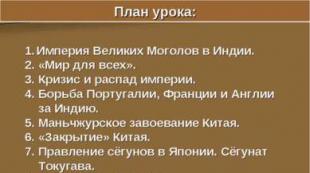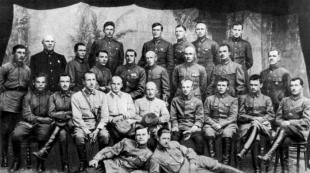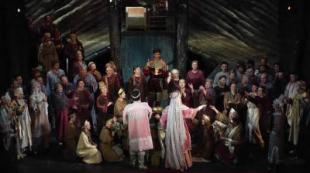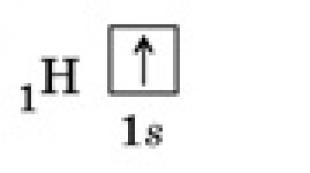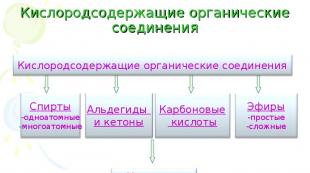Высшее образование в англии. Топик по английскому языку "The British Education System. State Education in Britain - Система образования в Великобритании. Государственное образование" British universities топик
In England and Wales compulsory school begins at the age of five, but before that age children can go to a nursery school, also called play school. School is compulsory till the children are 16 years old.
In Primary School and First School children learn to read and write and the basis of arithmetic. In the higher classes of Primary School (or in Middle School) children learn geography, history, religion and, in some schools, a foreign language. Then children go to the Secondary School.
When students are 16 years old they may take an exam in various subjects in order to have a qualification. These qualifications can be either G.C.S.E. (General Certificate of Secondary Education) or "O level" (Ordinary level). After that students can either leave school and start working or continue their studies in the same school as before. If they continue, when they are 18, they have to take further examinations which are necessary for getting into university or college.
Some parents choose private schools for their children. They are very expensive but considered to provide a better education and good job opportunities.
In England there are 47 universities, including the Open University which teaches via TV and radio, about 400 colleges and institutes of higher education. The oldest universities in England are Oxford and Cambridge. Generally, universities award two kinds of degrees: the Bachelor"s degree and the Master"s degree.
[ перевод на русский язык]
Образование в Британии
В Англии и Уэльсе обязательное обучение в школе начинается с пяти лет, но до этого возраста дети могут ходить в детский сад, также называемый игровой школой. Обучение в школе обязательно до достижения детьми возраста 16 лет.
В первичной школе и начальной школе дети учатся читать и писать, а также основам арифметики. В старших классах первичной школы (или в средней школе) дети учат географию, историю, религию и, в некоторых школах, иностранный язык. После этого дети переходят в среднюю школу.
Когда ученики достигают шестнадцатилетнего возраста, они могут сдавать экзамены по различным предметам для получения квалификации. Квалификация может быть как образца О.С.С.О. (Основное свидетельство о среднем образовании), так и обыкновенного уровня. После этого учащиеся могут покинуть школу и устроиться на работу или продолжить образование в той же школе. Если они продолжат обучение, то, когда им исполнится 18 лет, они должны будут сдавать следующие экзамены, которые необходимы для поступления в университет или колледж.
Некоторые родители выбирают для своих детей частные школы. Они очень дорогие, но считается, что образование в них дается на более высоком уровне и имеются предпосылки для получения хорошей работы.
В Англии 47 университетов, включая Открытый университет, обучение в котором производится по телевидению и радио, около 400 колледжей и высших учебных заведений. Старейшие университеты Англии — Оксфорд и Кембридж. Главным образом, в университетах присваиваются два типа степеней: степени бакалавра и магистра.
Вопросы:
1. How long does a child stay in compulsory school?
2. When does compulsory school begin?
3. What kind of exam do students have to take when they are 16?
4. What subjects do children learn in Primary School?
5. How do private schools differ from the regular ones?
6. Do students have to leave school at the age of 16 or to continue their studies?
7. What is the Open University?
8. What kinds of degrees do universities award?
9. How many universities are there in England?
Словрик:
bachelor — бакалавр
compulsory — обязательная
exam — экзамен
master — магистр
nursery school — детский сад
opportunity — возможность
private — частный
subject — предмет
to award — давать, присваивать
university — университет
Twelve million children attend about 40.000 schools in Britain. Education in Great Britain is compulsory and free for all children between the ages of 5 and 16. There are many children who attend a nursery school from the age of 3, but it is not compulsory. In nursery schools they learn some elementary things such as numbers, colours, and letters. Apart from that, babies play, have lunch and sleep there. Whatever they do, there is always someone keeping an eye on them.
Compulsory education begins at the age of 5 when children go to primary school. Primary education lasts for 6 years. It is divided into two periods: infant schools (pupils from 5 to 7 years old) and junior schools (pupils from 7 to 11 years old). In infant schools children don"t have real classes. They mostly play and learn through playing. It is the time when children just get acquainted with the classroom, the blackboard, desks and the teacher. But when pupils are 7, real studying begins. They don"t already play so much as they did it in infant school. Now they have real classes, when they sit at desks, read, write and answer the teacher"s questions.
Compulsory secondary education begins when children are 11 or 12 and lasts for 5 years. Secondary school is traditionally divided into 5 forms: a form to each year. Children study English, Mathematics, Science, History, Art, Geography, Music, a Foreign language and have lessons of Physical training. Religious education is also provided. English, Mathematics and Science are called "core" subjects. At the age of 7,11 and 14 pupils take examinations in the core subjects.
There are 3 types of state secondary schools in Great Britain. They are:
1.
comprehensive schools, which take pupils of all abilities without exams. In such schools pupils are often put into certain sets or groups, which are formed according to their abilities for technical or humanitarian subjects. Almost all senior pupils (around 90 per cent) go there;
2.
grammar schools, which give secondary education of a very high standard. Entrance is based on the test of ability, usually at 11. Grammar schools are single sexed schools;
3.
modern schools, which don"t prepare pupils for universities. Education in such schools gives good prospects for practical jobs.
After five years of secondary education, at the age of 16, pupils take the General Certificate of Secondary Education (GCSE) examination. When they are in the third or in the forth form, they begin to choose their exam subjects and prepare for them.
After finishing the fifth form pupils can make their choice: they may either leave school and go to a Further Education College or continue their education in the sixth form. Those who stay at school after GCSE, study for 2 more years for "A" (Advanced) Level Exams in two or three subjects which is necessary to get a place at one of British universities.
There are also about 500 private schools in Great Britain. Most of these schools are boarding ones, where children live as well as study. Education in such schools is very expensive, that"s why only 5 per cent of schoolchildren attend them. Private schools are also called preparatory (for children up to 13 years old) and public schools (for pupils from 13 to 18 years old). Any pupil can enter the best university of the country after leaving this school. The most famous British public schools are Eton, Harrow and Winchester.
After leaving secondary school young people can apply to a university, a polytechnic or a college of further education.
There are 126 universities in Britain. They are divided into 5 types:
The Old ones, which were founded before the 19th century, such as Oxford and Cambridge;
The Red Brick, which were founded in the 19th or 20th century;
The Plate Glass, which were founded in 1960s;
The Open University It is the only university offering extramural education. Students learn subjects at home and then post ready exercises off to their tutors for marking;
The New ones. They are former polytechnic academies and colleges.
The best universities, in view of "The Times" and "The Guardian", are The University of Oxford, The University of Cambridge, London School of Economics, London Imperial College, London University College.
Universities usually select students basing on their A-level results and an interview.
After three years of study a university graduate get the Degree of a Bachelor of Arts, Science or Engineering. Many students then continue their studies for a Master"s Degree and then a Doctor"s Degree (PhD).
Образование в Великобритании (5)
В Великобритании 12 миллионов детей посещают около 40 тысяч школ. Образование здесь обязательное и бесплатное для детей от 5 до 16 лет. Многие дети идут в детский сад, когда им исполняется 3 года, но это не обязательно. В детских садах дети познают элементарные основы, такие как цифры, цвета и буквы. Помимо этого, они там же играют, едят и спят. Что бы они ни делали, за ними всегда кто-то присматривает.
Обязательное образование начинается с 5 лет, когда дети идут в начальную школу. Начальное образование длится 6 лет. Оно подразделяется на 2 периода: школа для малышей (с 5 до 7 лет) и начальная школа (с 7 до 11 лет). В младшей школе у детей нет уроков. Они в основном играют и учатся через игру. Это время, когда дети ещё только знакомятся с классной комнатой, доской, партами и учителем. Но когда детям исполняется 7 лет, для них начинается настоящая учёба. Они уже не уделяют столько времени игре, как это было в младшей школе. Теперь у них настоящие уроки: они сидят за партами, читают, пишут и отвечают на вопросы учителя.
Обязательное среднее образование начинается, когда детям исполняется 11 или 12 лет, и длится 5 лет. Средняя школа по традиции делится на 5 классов - по классу на год обучения. Дети изучают родной язык, математику, естествознание, историю, изобразительное искусство, географию, музыку, какой-либо иностранный язык и занимаются физкультурой. Предусмотрено и преподавание религии. Английский язык, математика и естествознание являются основными предметами. В возрасте 7, 11 и 14 лет школьники сдают экзамены по основным предметам.
Существует 3 вида государственных школ среднего образования:
1.
Общеобразовательные школы. Они принимают учеников с любыми способностями без вступительных экзаменов. В таких школах дети обычно распределяются по разным группам - в зависимости от их уровня владения техническими или гуманитарными предметами. Практически все старшеклассники (около 90 %) идут в эти школы.
2.
Грамматические школы. Они дают среднее образование на очень высоком уровне. Поступление в такую школу зависит от результатов письменного экзамена, который дети сдают в возрасте 11 лет. В грамматических школах практикуется раздельное обучение мальчиков и девочек.
3.
Современные школы. Они не готовят детей к поступлению в университет. Обучение в таких школах даёт перспективы только в рабочей сфере деятельности.
После пяти лет обучения в средней школе, в возрасте 16 лет, ученики сдают экзамен на получение сертификата об окончании средней школы. Уже в 3-м или 4-м классе они начинают выбирать предметы для сдачи экзаменов и занимаются подготовкой к ним.
По окончании 5-го класса ребятам предоставляется выбор: они могут либо окончить школу и продолжить обучение в колледже, либо перейти в 6-й класс. Те, кто остаётся в школе после экзамена на получение сертификата об окончании средней школы, учатся ещё 2 года, после чего сдают экзамены уровня «А» по двум или трём предметам, что необходимо для поступления в один из британских университетов.
В Великобритании также существует около 500 частных, или независимых, школ. Большинство из них являются школами-интернатами, где дети не только учатся, но и живут. Обучение в таких школах стоит очень дорого, поэтому их посещает только 5 % всех школьников. Существуют подготовительные частные школы (для детей до 13 лет) и привилегированные частные школы (для детей от 13 до 18 лет). Наиболее известные частные школы Великобритании: Итон, Харроу, Винчестер.
После того как учащийся окончил школу, он имеет право подать заявление в университет, техникум или колледж для дальнейшего образования.
В Великобритании 126 университетов. Они делятся на 5 типов:
- древние. Основаны до XIX в., к их числу относятся Оксфорд и Кембридж;
- «Красного кирпича» (Red Brick). Основаны в XIX или XX в.;
- «Стеклянные» (Plate Glass). Основаны в 1960-х гг.;
- Открытый университет (Open University). Это единственный университет, предлагающий заочное образование. Студенты изучают предметы дома, а затем посылают готовые задания преподавателям на проверку;
- новые. К ним относятся бывшие политехнические академии и колледжи.
По мнению журналов Тайме и Гардиан, лучшими университетами являются: Оксфорд, Кембридж, Лондонская школа экономики, Имперский колледж Лондона, Университетский колледж Лондона.
Получение места в университете зависит от результата экзаменов уровня «А».
После трёх лет обучения выпускник университета получает степень бакалавра гуманитарных, естественных или технических наук. Многие студенты продолжают учёбу, чтобы получить степень магистра, а затем и доктора наук.
Questions:
1. When do British boys and girls begin to go to school?
2. What subjects do they study at school?
3. How long does secondary education last?
4. What subjects are called "core" subjects?
5. At what age do children have their exams?
6. What"s the difference between modern and grammar schools?
7. What are private schools?
8. Would you like to study in Britain? Why?
9. Compare British and Russian education.
10. What types of British universities do you know?
Vocabulary:
compulsory - обязательный
free - бесплатный
to attend - посещать
nursery school - детский сад (государственный)
letter - буква
to keep an eye on smb. - следить за кем-либо
primary school - младшие классы, начальная школа, школа первой ступени
infant school - школа для малышей, младшая школа
junior school - начальная школа (для детей от 7 до 11 лет)
to get acquainted - знакомиться
secondary education - среднее образование
to be divided into - делиться на
Science - естествознание
Art - изобразительное искусство
core subject - основной предмет
comprehensive school - общеобразовательная школа
according to - в соответствии с
ability - способность
grammar school - грамматическая школа
entrance - поступление
single sexed school - школы для мальчиков и для девочек (разделённые по половому признаку)
modern school - современная школа
GCSE - экзамен на сертификат об окончании среднего образования
"A" (advanced) Level Exam - экзамен уровня "А" (продвинутого)
private school - частная школа
boarding school - школа-интернат, школа-пансион
preparatory school - подготовительная частная школа
public school - привилегированная частная школа
to apply - подавать заявление
extramural - заочный, вечерний
polytechnic - политехникум
tutor - преподаватель
Degree of a Bachelor - степень бакалавра
Master"s Degree - степень магистра
Doctor"s Degree - докторская степень
Education in Great Britain is provided by the Local Education Authority (LEA) in each county. Until recently, each LEA was free to decide how to organize education in its own area. However, in 1988 the «National Curriculum» was introduced. It means that there is greater government control over what is taught in schools now.
Children under five don’t have to go to school, but there is some free nursery-school education before that age. The places are usually given to families in special circumstances, for example families with one parent only. That’s why in many areas parents have formed play groups where children under five years can go for a morning or afternoon a couple of times a week.
At the age of five children go to primary schools, first to infant schools for pupils aged from 5 to 7 and then to junior, schools for pupils from 8 to 11 years.
Some parents choose to pay for private education though there are free state schools. Private schools are called by different names compared to state schools. The preparatory schools are for pupils aged up to 13, and the public schools are for 13 to 18 year-olds. These schools are very expensive and they are attended only by about 5 per cent of the schoolchildren.
Free secondary education has been available to all children in Britain since 1944. Children must go to school until the age of 16, and pupils may stay on for one or two years more if they wish.
Over 80 per cent of schoolchildren go to comprehensive schools at the age of 11. These schools are not selective - you don’t have to pass an exam to go there. But before 1965 all children took an exam at the age of 11 called the «11+». The top 20 per cent were chosen to go to the academic grammar schools. Those who failed the «11+» went to secondary modern schools. A lot of people thought that this system of selection at the age of 11 was unfair on many children. So comprehensive schools were introduced to offer education for pupils of all abilities. There are a few LEAs who still keep the old system, but most LEAs have now changed over completely to nonselective education in comprehensive schools.
Comprehensive schools want to develop the talents of each individual child. So they offer a wide choice of subjects, from art and craft, woodwork and domestic science to the sciences, modern languages, computer studies, etc. All these subjects are enjoyed by both girls and boys. All pupils move to the next class automatically at the end of the year.
At the age of 14 or 15 pupils begin to choose their exam subjects. In 1988 a new public examination - the General Certificate of Secondary Education (GCSE) - was introduced for 16 year- olds. This examination assesses pupils on the work they do in the 4th and 5th year at secondary school, For University entrance pupils have to take «А» Level (Advanced Level) GCE exam.
Many people decide to leave school at the age of 16 and go to a Further Education (FE) College for practical vocational training, for example in engineering, typing, cooking or hairdressing.
Topic: Universities of Great Britain
Тема: Университеты Великобритании
Education is a process of teaching and learning, gaining new knowledge, experience, and practice. It is a very valuable possession for every person, as the earlier you start, the deeper knowledge you are going to have. We have been taught for all our life since the birth. Our first teacher is our mum, later we receive useful information in the kindergarten, then we develop our skills at school, but eventually each intelligent person makes a decision to enter a higher educational establishment. If you desire to become a student of the university, you should work hard to prepare for it. Usually the choice of the university is a very serious decision, so no wonder that more and more school graduates want to study in the best educational establishments. Many European teenagers head for Great Britain, as its universities are famous all around the world and their diplomas are valued everywhere.
Образование - это процесс обучения, получения новых знаний, опыта, практики. Оно очень дорого для каждого человека, так как чем раньше вы его начнете, тем глубже знания можно получить. Нас учат всю жизнь, начиная с рождения. Наш первый учитель - это мама, позже мы получаем полезную информацию в детском саду, затем мы развиваем наши навыки в школе, но в конечном итоге каждый разумный человек принимает решение поступать в высшее учебное заведение. Если вы желаете стать студентом университета, вы должны усердно работать, чтобы подготовиться к нему. Как правило, выбор вуза - это серьезное решение, так что неудивительно, что все больше и больше выпускников школ хотят учиться в лучших учебных заведениях. Многие европейские подростки направляются в Великобританию, так как ее университеты известны во всем мире и их дипломы ценятся везде.
British universities have their own peculiarities: all of them but one, receive the State financing and have considerably higher fees, usually students have only a major specialty without a minor one and almost all students attend establishments far away from their native towns, so universities provide students with accommodation.
Британские университеты имеют свои особенности: все они, кроме одного, получают государственное финансирование и имеют значительно более высокую оплату, обычно студенты имеют только основную специальность без незначительных и почти все студенты посещают университеты далеко от родного города, поэтому вузы предоставляют студентам проживание.
There are several types of universities in Great Britain. The first type is the ancient ones. All of them were founded between and are very reputable. The top place of them is divided between two well-known universities: Oxford and Cambridge, both known as Oxbridge. Though they have rivalry, there is also a great cooperation between them. A lot of elite people are the graduates of these universities, though they have differences in educational process. Each of them is divided into more than thirty colleges. Colleges at Oxford suggest only those subjects for the students that depend on the field of their study, but Cambridge colleges give a chance to choose the subjects from the list according to your preferences. Oxford University was founded in 1096 and now more than 20,000 students attend it. It offers a broad array of courses, cooperates with numerous organizations, but a degree there will cost you a pretty penny. Cambridge University is also known as the biggest public research center and was founded in 1209 by scholars, who had escaped to Cambridge from Oxford. There are more than 18,000 students there and some of the colleges admit only women. Students attend not only group teaching sessions, but also have supervisions. Each of the graduates remains a member of the college forever.
Существует несколько типов университетов в Великобритании. Первый тип является самым древним. Все они были основаны в период между 16-м и 19-м веком и являются очень авторитетными. Топовые места делят между собой два известных университета: Оксфорд и Кембридж, известные, как Оксбридж. Хотя у них есть соперничество, существует также отличное сотрудничество между ними. Много элитных людей выпустили из этих университетов, хотя они имеют различия в образовательном процессе. Каждый из них поделен на более чем тридцать колледжей. Колледжи в Оксфорде предлагаю только те предметы студентам, которые зависят от области исследования, но Кембриджские колледжи дают возможность выбрать предметы из списка в соответствии с вашими предпочтениями. Оксфордский Университет был основан в 1096 году, а сейчас более 20 000 студентов посещают его. Он предлагает широкий спектр курсов, тесно сотрудничает с многочисленными организациями, но степень там обойдется вам в копеечку. Кембриджский Университет также известен как самый большой общественный научно-исследовательский центр и был основан в 1209 году учеными, которые бежали из Оксфорда в Кембридж. Там более чем 18 000 студентов и некоторые колледжи принимают только женщин. Учащиеся посещают не только групповые занятия, но также есть личное общение с преподавателем. Каждый из выпускников остается членом колледжа навсегда.
The second type of the universities is red brick ones. They got their name because of the material they are built with and are located in Manchester, Birmingham and Leeds. They were established during Queen Victoria’s reign and before World War II. They differ from the ancient ones because of being non-collegiate and they have taught only locals. They used to admit only men and focus only on “practical subjects”. Red Brick Universities were started as preparatory courses, but nowadays they award with their own degrees.
Второй тип вузов – это вузы из красного кирпича. Они получили свое название из-за материала, из которого они построены и находятся в Манчестере, Бирмингеме и Лидсе. Они были созданы в период царствования королевы Виктории и до Второй Мировой Войны. Они отличаются от древних, потому что они не соборные, и преподавание велось только для местных жителей. Они допускали только мужчин к обучению и сосредотачиваются только на “практических предметах”. Университеты из красного кирпича были основаны как подготовительные курсы, но на сегодняшний день они награждают своими дипломами.
New universities are subdivided into two types: the campus and the newer civic ones. They appeared after the Robins Report and the ones founded are considered "Plate Glass Universities". The Campus Universities are situated in the countryside, have enough accommodation for international students, provide teaching in small groups and put an emphasis on relatively new disciplines. The New Civic Universities used to be technical colleges and . Gradually they were given the right to award with the degree. They are known as “polytechnics” and suggest “sandwich” courses ( outside the establishment).
Новые университеты подразделяются на два типа: те, что находятся на территории кампуса и новые гражданские. Они появились после доклада Роббинса, и те, что были основаны в 1960-е годы, считаются "Университетами с стеклянными плитами". Кампус-университеты расположены в сельской местности, имеют достаточно жилья для иностранных студентов, проводят обучение в малых группах и акцентируют внимание на сравнительно новых дисциплинах. Новые гражданские университеты раньше были техникумами и называются университетами После 1992. Постепенно они получили право присуждать степень. Они известны как “политехники” и предлагают “сэндвич”-курсы (возможность обучаться за пределами учреждения).
The last type of the universities is called the Open University. It centers on a distant learning. In 2005 there were more than 180,000 students and it became the largest institution of the UK higher education. The administration of it is based in Buckinghamshire and it has 13 regional offices all over the country. The students of this university get information on TV, radio, in the course-books or the Internet. The students have tutors, who check their works and discuss them. In summer they have short residential courses according to the field of study.
Последний тип университетов называется Открытым Университетом. В центре его лежит дистанционное обучение. В 2005 году насчитывалось более 180 000 студентов, и он стал крупнейшим учреждением высшего образования Великобритании. Его администрация находится в Бакингемшире, и он имеет 13 региональных отделений по всей стране. Студенты этого вуза получают информацию по телевизору, радио, в учебниках или в Интернете. У студентов есть руководители, которые проверяют их работы и обсуждают их. Летом они имеют короткие курсы по направлению обучения.
Vocabulary:
compulsory - обязательно;
nursery school [ˈnəːsərɪ] - детский сад;
Primary School [ˈpraɪmərɪ] - начальная школа;
Secondary School [ˈsekəndərɪ] - средняя школа;
last - продолжаться;
General Certificate - Общее свидетельство;
A-level - уровень А;
higher - высшее;
receive - получать;
accommodation [əkɒməˈdeɪſ(ə)n] - жилье;
Twelve million children visit about 40.000 schools in Britain. Education in Great Britain is compulsory. All British children must stady at school between the ages of 5 and 16. Many of them stay longer and take school-leaving exams when they are 18. But before that age of 5 many children can go to a nursery school, also called play school.
In Primary School and First School children learn to read and write and the basis of arithmetic. In the higher classes of Primary School (or in Middle School) children learn geography, history, religion and, in some schools, a foreign language. Then children go to the Secondary School.
Compulsory secondary education begins when children are 11 or 12 and lasts for 5 years. Secondary school is traditionally divided into 5 forms: a form to each year. Children study English, Mathematics, Science, History, Art, Geography, Music, a Foreign language and have lessons of Physical training, Religious. At the age of 7,11 and 14 pupils take examinations in the core subjects.
At the age of 16 pupils take General Certificate of Secondary Education exams in several subjects. After that they can try to get a job, go to college of further education, or stay at school for another 2-3 years.
If they stay at school after 16, or go to a college of further education, they take school-leaving A-level exams at the age of 18. After that, they may choose to go to a university or a college of higher education.
In England there are 47 universities, including the Open University which teaches via TV and radio, about 400 colleges and institutes of higher education. The oldest universities in England are Oxford and Cambridge. Generally, universities award two kinds of degrees: the Bachelor’s degree and the Master’s degree.
Students may receive grants and loans from their Local Educational Authorities to help pay for books, accommodation, transport and food. However, most students should pay these loans back after they get a job.
Most students in Great Britain live away from home, in flats or halls of residence. To pay for education, many students have to work in the evening and during their summer vacations.
Some parents choose private schools for their children. They are very expensive but considered to provide a better education and good job opportunities.
Топик по английскому языку на тему: Education in Great Britain / Образование в Великобритании
